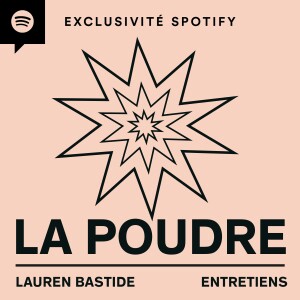
Cet épisode de La Poudre est disponible à l’écoute dans une version doublée en français. Cliquez sur l'épisode suivant pour l’écouter.
Part of the discussion in this episode revolves around sexual violence. It may be triggering for survivors.
--
“Me Too and Now?” is an eight-episode series to give the floor to sexual violence whistleblowers who have made and are still making the #MeToo revolution. Whether they have taken the mic, the keyboard or the pen, whether their testimonies have had judicial repercussions or not, they have put words on what is often silenced, they have said “me too”. But what comes next? What does one feel after speaking up? Do they feel stronger? More vulnerable? Do they feel heard, understood by society, by the justice system, by the media? By their closed ones? Is speaking up healing, or do they just get by?
Episode Summary:
Sarah Schulman is a thinker feminist activist and prolific writer, her books include novels, essays, theater plays, she is also a professor at the City University of New York (CUNY). She fought for abortion rights in the 70’s, was an active member of Act Up and is now an advocate for the Jewish Voices for Peace collective,. With Lauren Bastide, she revisits her cult essay Conflict is not Abuse: Overstating Harm, Community Responsibility and the Duty of Repair, published in 2016 and just translated in French (4’21). Her work has deeply enlightened the psycho-sociological field of conflict, in the intimate, public and geopolitcal frameworks, but also inside social movements themselves. A young generation of activists had sometimes seen this book - wrongly - as a reflexion about cancel culture (5’19). She actually draws a crucial distinction between conflict and abuse (10’32), and criticizes the victimization mechanism as a research for compassion, an impulse that can be found both from dominant (8’37) and traumatized people (9’22), causing an overstating of harm (11’49), escalation of violence, and eventually heavy reliance on State intervention, police and justice (14’15). Observing, as a lesbian woman, violences occuring in homophobic families towards queer people (22’12) but also, as a Jewish woman, violences from the State of Isreal towards the Palestinian people (23’26), she reaches the concept of negative loyalty (13’35). She calls for negotiation, self-criticism and nuance to put an end to this dynamic (20’43). She also mentions Adrienne Rich and Audre Lorde, and their importance in her education (25’08), the horizontal and efficient organization of Act Up New York in the 80s, which she deeply studied the oral archives for Let the record show, her last-published book in the US (42’19). Lastly, she raises the necessity for the feminist claims to be led by mixed movements to avoid backlash (52’46) and her reading of Alice Coffin’s Lesbian Genius (55’35).
Producer: Lauren Bastide
Exclusively broadcasted on Spotify
Opening title: Lauren Bastide and Marion Emerit on an original concept by Aurore Meyer-Mahieu
Original music for the introduction: Jeanne Cherhal
Editing, mixing: Marion Emerit
Executive production: Gaïa Marty and Marie Laurence-Chérie with the help of Marie Vincent
Learn more about your ad choices. Visit podcastchoices.com/adchoices
More Episodes
 2023-12-20
2023-12-20
 2023-12-06
2023-12-06
 2023-11-22
2023-11-22
 2023-11-08
2023-11-08
 2023-10-25
2023-10-25
 2023-10-11
2023-10-11
 2023-09-27
2023-09-27
 2023-09-13
2023-09-13
 2023-09-12
2023-09-12
 2023-08-31
2023-08-31
 2023-08-17
2023-08-17
 2023-08-03
2023-08-03
 2023-07-20
2023-07-20
 2023-07-05
2023-07-05
 2023-06-21
2023-06-21
 2023-06-07
2023-06-07
 2023-05-24
2023-05-24
 2023-05-11
2023-05-11
 2023-04-26
2023-04-26
Create your
podcast in
minutes
- Full-featured podcast site
- Unlimited storage and bandwidth
- Comprehensive podcast stats
- Distribute to Apple Podcasts, Spotify, and more
- Make money with your podcast
It is Free
- Privacy Policy
- Cookie Policy
- Terms of Use
- Consent Preferences
- Copyright © 2015-2024 Podbean.com






